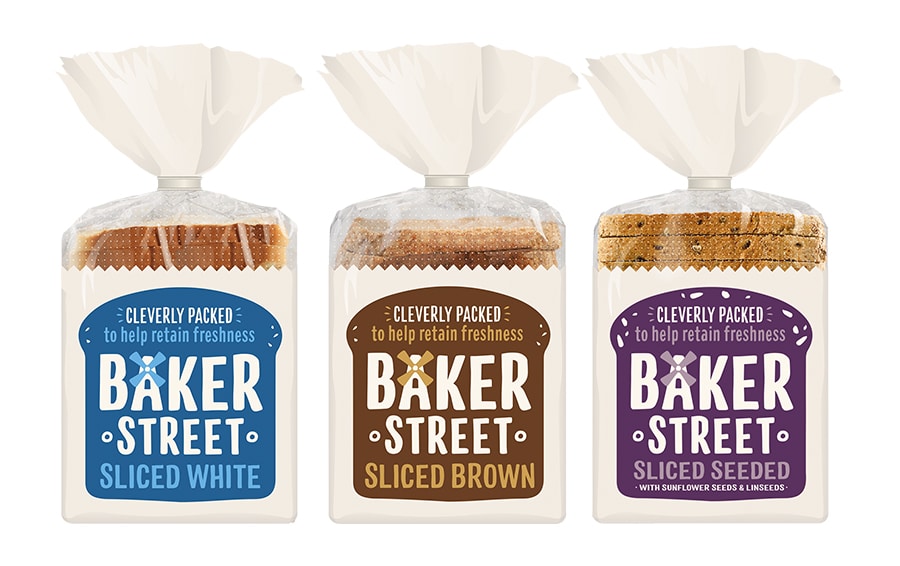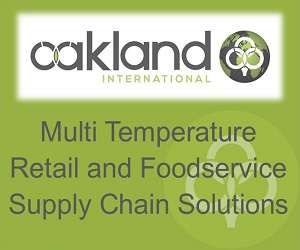Navigating food waste is high on the agenda, not just for retailers and wholesalers, but also with shoppers, as Brits admit they generate so much food waste – because their eyes are bigger than their bellies, ingredients go out of date and confusion over portion sizes.
A study of 2,000 adults revealed making more than is required, a lack of time to accurately measure out ingredients and not planning ahead were among the top reasons for not knowing how much food to prepare for dinner.
But more than a quarter (26 per cent) admitted they generate a ‘lot’ of food waste, with 37 per cent of the opinion it’s better to serve up more food than is needed rather than less.
And 23 per cent typically cook portions which are too big.
A spokesperson for long life bakery brand, Baker Street, which commissioned the research ahead of Food Waste Action Week, said: “We’ve all been guilty of cooking too much, or not finishing a plateful and the research shows many reasons why we unintentionally create food waste.
“Whether it’s missing the ‘best before dates’, confusion over ingredients, simply guessing, or thinking you’re cooking for a group before people start dropping out of dinnertime, it’s easily done.
“With the cost-of-living crisis impacting us all and a greater awareness of the impact of food waste on climate change, it’s more important than ever to watch what we’re buying, serving up and putting in the bin.”
The research also found people feel annoyed (31 per cent), frustrated (20 per cent) and ashamed (15 per cent) when they generate food waste.
Similarly, 47 per cent know it’s an important issue for the world and 46 per cent don’t like wasting expensive food or ingredients in particular.
More than a third (34 per cent) think more needs to be done to raise awareness of food waste and one in 10 would like to reduce the amount they personally create, but don’t know how.
But 29 per cent said the cost-of-living crisis has made them more aware of the ingredients and meals they personally waste.
The top meals Brits struggle with most when judging portion sizes were spaghetti Bolognese (20 per cent) and pasta in general (19 per cent), followed by a roast dinner (15 per cent) and stew (13 per cent).
While 52 per cent admitted they are not aware of the correct portions recommended for various dishes.
It also emerged that during the typical week, households generate food waste on an average of three days.
In a bid to reduce it, 27 per cent have tested out measuring tools such as a spaghetti measurer, and 23 per cent have used plates as a guide.
Baker Street’s spokesperson added: “Bread is one of the most wasted food items, with more than a quarter (26 per cent) of throwing it away regularly.
“Our products are cleverly packed to last longer and this year, we are supporting Food Waste Action Week with top tips, leftover recipe inspiration and savings ideas to help the one in 10 who admit they would like to reduce their food waste, but don’t know how.”
Among the ingredients people waste at least once a month are bags of salad (28 per cent), bread (26 per cent) and potatoes (21 per cent).
But those polled, go to greater lengths to avoid wasting meat (33 per cent), fish (25 per cent) and vegetables (24 per cent).
Instead of throwing it away, 24 per cent have re-used food in a way which doesn’t involve eating it, including as a plant fertiliser (18 per cent) and a face scrub (eight per cent).
However, more than a third of Brits (35 per cent) admit to disposing of their food waste in a regular rubbish bin.
Baker Street is cleverly packed to stay fresher for longer and guarantees a minimum life of 35 days from delivery to depot, helping retailers and wholesale operators to ensure on-shelf availability and reduce the risk of wastage. This is also a benefit for consumers who are looking for food items with a generous shelf-life to help reduce food waste.
In the last 12 weeks, Baker Street has grown 7 per cent, with sales of its sliced loaves (white, brown and seeded) up 9 per cent and rolls 10 per cent (Nielsen Value Sales – L52 Weeks Oct 22ns, 2022). Alongside its quality proposition, the business maintains that the extended-life offer holds key appeal.
The research was commissioned by OnePoll and carried out as part of Baker Street’s ‘Food Waste’ campaign, which is being supported by informative graphics, including a food waste map, social media, digital and consumer-facing PR activity.
From more information and insights from the research, visit www.lovebakerstreet.com/food-waste











